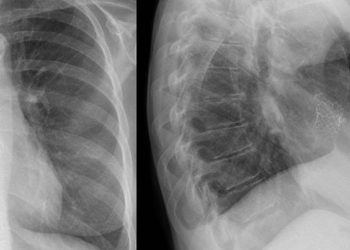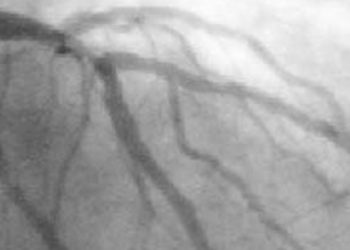Fibrinogen concentrate may be cost-effective for bleeding management in adult cardiac surgery patients
1. In this within-trial economic evaluation of the Fibrinogen Replenishment in Surgery (FIBERS) randomized clinical trial, the median total 7-day allogenic blood product (ABP) transfusion cost was CAD $2280 in the fibrinogen concentrate group and CAD $2770 in the cryoprecipitate group.
2. The incremental net benefit of fibrinogen concentrate vs cryoprecipitate was positive, with an 86% and 97% probability of being cost-effective at $0 and CAD $2000, respectively.
Evidence Rating Level: 1 (Excellent)
Study Rundown: Excessive bleeding is a serious complication of cardiac surgery, often acquired due to hypofibrinogenemia, that requires fibrinogen replacement. Fibrinogen levels during cardiac surgery can either be supplemented using fibrinogen concentrate (FC) or cryoprecipitate. There is, however, limited high-quality evidence comparing the effectiveness of FC vs cryoprecipitate. Hence, the objective of this within-trial economic evaluation of the FIBERS trial was to determine the cost-effectiveness of FC vs cryoprecipitate for managing active bleeding in adult cardiac surgery patients. The FIBERS trial took place between February 2017 to November 2018 at 4 hospitals in Ontario, Canada. Participants were randomized (1:1) to either FC (4 g per dose) or cryoprecipitate (10 units per dose). The main effectiveness outcomes included the number of ABPs administered within 24 hours and 7 days of cardiopulmonary bypass (CPB). Patient-level costs were evaluated for a total of 495 patients. The median total 7-day ABP cost was CAD $2280 in the FC group and CAD $2770 in the cryoprecipitate group. The median total 28-day cost was CAD $38 180 in the FC group and CAD $38 790 in the cryoprecipitate group. A strength of this study was its approach to capturing the hospital perspective while also considering the costs of ABPs paid by the Ontario government. A limitation, however, was that approximately 72% of the study sample came from a single quaternary academic hospital. Therefore generalizability of the analysis is limited for other Canadian provinces.
Click to read the study in JAMA Surgery
Relevant Reading: Effect of fibrinogen concentrate vs cryoprecipitate on blood component transfusion after cardiac surgery: The FIBRES randomized clinical trial
In-Depth [randomized controlled trial]: This study was a real-world within-trial cost-effectiveness evaluation of FC vs cryoprecipitate for managing active bleeding in adult cardiac surgery patients. This study included 67.3% of patients in the primary effectiveness analysis of the FIBERS randomized clinical trial. Patient level costs were evaluated for a total of 495 patients (mean [SD] age 59.2 [15.4] years and 69.3% male.) Interventions included FC (4 g per dose) or cryoprecipitate (10 units per dose) randomized 1:1 up to 24 hours post-CPB. ABP transfusions and adverse events were similar in both intervention groups. The main outcomes included the number of ABPs administered within 24 hours and 7 days of CPB. ABP transfusion (7-day) and in-hospital resource utilization (28-day) costs were evaluated. Median (interquartile range [IQR] total 7-day ABP cost was CAD $2280 (USD $1698) (IQR, CAD $930 [USD $693] – CAD $4970 [USD $3701]) CAD in the FC group and CAD $2770 (USD $2063) (IQR, CAD $1140 [USD $849] – CAD $5000 [USD $3723]) in the cryoprecipitate group. Similar total costs were seen at 28 days post-surgery. The Median (IQR) total 28-day cost was CAD $38 180 (USD $28 431) (IQR, CAD $26 350 [USD $19 622] – CAD $65 080 [USD $48 463]) in the FC group and CAD $38 790 (USD $28 886) (IQR, CAD $26 180 [USD $19 495] – CAD $70 380 [USD $52 409]) in the cryoprecipitate group. After exclusion of critically ill patients (11%) due to the substantial variability in costs, the incremental net benefit of FC vs cryoprecipitate was found to be positive (probability of being cost-effective 86% and 97% at $0 and CAD $2000 (USD $1489) willingness-to-pay, respectively.
Image: PD
©2023 2 Minute Medicine, Inc. All rights reserved. No works may be reproduced without expressed written consent from 2 Minute Medicine, Inc. Inquire about licensing here. No article should be construed as medical advice and is not intended as such by the authors or by 2 Minute Medicine, Inc.







